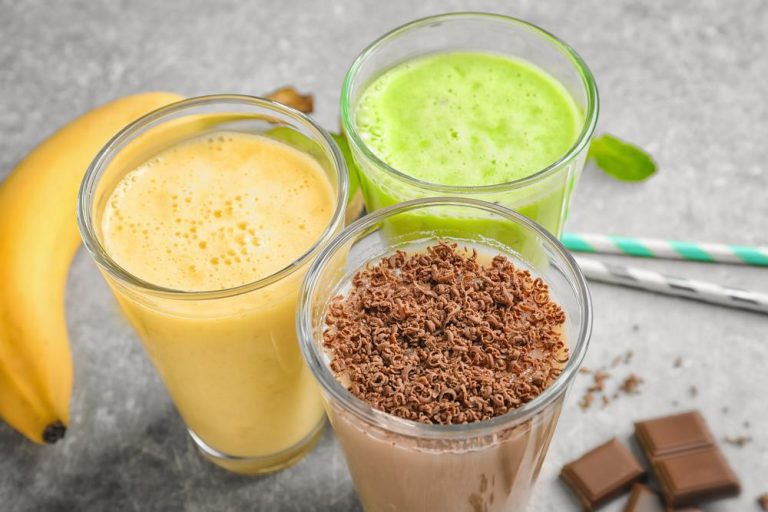If you’ve been struggling with excess weight, yo-yo dieting and the associated low self-esteem for years, you may be wondering where to turn. There are so many options out there. Medical spas around the country are touting the benefits of using meal replacements as well as participating in medically supervised diet cleanses as some of the best solutions for losing weight and keeping it off. Are these medical spas correct?
First, let’s define what meal replacements are or could be. It seems that these meal replacements most often are in the form of a shake. According to a 2018 article in productreview.com, “(meal replacement) shakes are specially formulated to include enough protein and the right nutrients to keep you full until the next meal, all for far fewer calories than you might otherwise consume.” These shakes come in the form of a powder that you mix with water, milk, coconut water or another beverage. Other times, a meal replacement is in the form of a bar and there are hundreds of different types of bars to choose from.
Secondly, what’s a diet cleanse? According to an article in healthline.com, “There’s no standard definition of what a weight loss cleanse is or what it should include. Generally speaking, the overarching goal of the cleansing process is to remove something from your diet or lifestyle in order to facilitate weight loss. These cleanse are typically brief and involve a specific set of instructions for diet modification to achieve a certain goal. Some simply aim to reduce weight, while others promise fat loss in specific body areas. Some include herbal supplements or exercise, while others focus solely on the types of food you eat.”
But do meal replacements or diet cleanses or the combination of them work for the long term? The answer is, in general, “they could” but with some serious qualifiers. Here’s the deal:
- Losing weight and keeping it off for the long haul, for most people, requires a fully holistic approach that involves not just following physical dietary guidelines, but also mental and spiritual development in order to “stick with” ANY plan
- Everyone’s dietary needs are different so it’s important to work with qualified professionals to design a plan of eating that makes the most sense for the individual
- Food substance addictions are real according to studies and statistics. These addictions apply to many people who have got a weight to lose, have been yo-yo dieting for years, and/or have other eating disorders. Among the most common foods that people have addictions to are sugar and other forms of added sweeteners. So, if you’ve got a substance addiction, you’ll need to stay away from meal replacements and bars that contain whatever you’re addicted to.
- To determine if you’ve got a food substance addiction or not, one place to turn would be Overeaters Anonymous (O.A.). www.oa.org O.A. does not give anyone a specific food plan to follow. Instead, it focuses on a mental and spiritual development system that helps people stick to eating plans prescribed by their health professionals.
With the above qualifiers firmly in place, here are some potentially good reasons to rely on meal replacements and diet cleanses as part of your eating plan for weight loss:
- According to WebMD.com regarding meal replacements: “These products will control your calories. They’re convenient and take the guesswork out of dieting.”
And, Dr. Rehka Kumar, a physician in the Comprehensive Weight Control Center at New York Presbyterian Hospital states in an article in Women’s Health Magazine, “There is a place for these when people initiate diets and have trouble with decision making or meal preparation,” says Kumar. If you have no idea where to start with your diet, meal replacement plans can be a helpful way to focus your efforts and limit your calorie intake, since, according to Kumar, many of them contain just 250 to 350 calories per meal.” The article further points out, “Here’s the thing: They (meal replacements) work. Studies have shown that meal replacement plans can be an effective catalyst in initial weight loss.”
- According to an article in healthline.com regarding diet cleanses: “Several aspects of detox diets may aid your health. These include avoiding environmental toxins, exercising, eating nutritious food, drinking water, limiting stress, and relaxing.”
And, an article in Women’s Health Magazine says the following about diet cleanses, “Done in a healthy (read: sane) way, detoxing “can feel like an intervention, a fresh beginning,” Hellerstein says. “Most people eat way more food than necessary, which taxes the liver and kidneys,” says Ronald Stram, M.D., director of the Center for Integrative Health and Healing in New York. Not only does a healthy detox give your digestive system a break, but by eliminating added sugar, saturated fats, and alcohol, it also rids your diet of things that can exacerbate health issues, Ventrelle says. “Plus,” she notes, “you’ll likely cut calories in the process.”
In short, if you’re cautiously optimistic, use qualified health professionals to design your plan of eating, and you incorporate a program to work the mental and spiritual aspects of being able to stick to a healthy regimen, you may be setting yourself up for the best chance of success.






